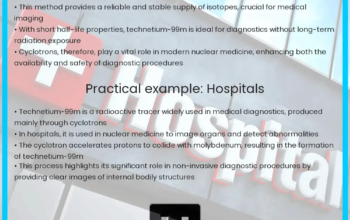Photonics, a pivotal field of study and application, encompasses the generation, manipulation, and detection of light (photons). As modern science burgeons, the relevance of photonics expands across various domains, including telecommunications, medical technologies, and manufacturing. A career within this burgeoning discipline promises a confluence of rewarding challenges and innovative prospects. This article elucidates the multifaceted landscape of careers in photonics, illuminating its significance and the diverse paths one may undertake.
1. Understanding the Scope of Photonics
At its core, photonics deals with the science of light. Light, as a fundamental force, drives numerous technological advancements. The field incorporates diverse technologies such as lasers, optical sensors, and fiber optics. To delineate the profession, it is vital to comprehend the various sectors engaged with photonic technologies:
- Telecommunications: The advent of high-speed internet and global connectivity is largely due to advances in fiber optic technologies. Careers in this sector focus on optimizing data transmission and developing next-generation communication infrastructures.
- Medical Technology: Photonics plays a crucial role in medical imaging, diagnostics, and therapeutic applications. Professionals may engage in designing optical devices like endoscopes or advancing laser treatments.
- Manufacturing: In manufacturing, photonics is utilized to enhance precision through laser cutting, welding, and micromachining. Individuals in this sector will often focus on process innovation and efficiency.
- Defense and Security: The application of photonics in surveillance, targeting systems, and secure communications continues to grow. Careers here involve R&D, engineering, and technical support.
- Solar Energy: Photovoltaic technology is a significant area of interest. Engineers and scientists work on improving the efficiency of solar cells, catering to a sustainable future.
2. The Educational Pathways
To embark on a career in photonics, individuals typically pursue degrees in physics, electrical engineering, or optical engineering. Advanced degrees often enhance one’s prospects. Graduate programs specifically centered on photonics combine theoretical knowledge with hands-on experimentation. Key areas of study include:
- Optics and Light Wave Theory: Understanding how light behaves and interacts with various materials is foundational.
- Electromagnetic Theory: Proficiency in electromagnetism is critical as it relates to the propagation of light.
- Quantum Mechanics: An exploration of the principles governing photon behavior opens avenues for cutting-edge innovations.
- Solid-State Physics: This knowledge aids in developing materials essential for photonic devices.
Internships, cooperative education experiences, and research opportunities are crucial for practical exposure. Engaging in projects that allow for collaboration with established firms or academic research can provide significant advantages.
3. Skills and Competencies Required
Photonics professionals curate a unique set of skills that encompass technical and analytical capabilities. Proficiency in programming languages such as MATLAB or Python is invaluable for simulations and data analysis. Additionally, practical skills in experimental setup and maintenance of optical equipment are paramount. Critical thinking and problem-solving abilities allow individuals to devise innovative solutions to intricate challenges. Moreover, teamwork and communication skills foster collaboration across multidisciplinary teams, which is often essential in advanced R&D environments.
4. Career Opportunities in Photonics
The job market for photonics engineers and scientists is robust, with opportunities proliferating in both public and private sectors. Industries are on the lookout for talent to spearhead technological innovations. Potential career roles include:
- Photonics Engineer: Engaged in designing and developing photonic devices, this role often requires expertise in both hardware and software integration.
- Optical Scientist: Focused on fundamental research, optical scientists conduct experiments and explore new theories related to light manipulation.
- Laser Technician: Responsible for the operation, maintenance, and repair of laser systems across various applications.
- Product Development Engineer: This position involves translating innovative concepts into practical products, enhancing market readiness.
- Sales Engineer for Photonics Products: A bridge between technological potential and customer needs, sales engineers employ their technical expertise to elucidate product advantages.
5. Future Trends and Innovations
As photonics continues its ascendancy, the future looks promising. The integration of artificial intelligence and machine learning in photonic applications is on the rise, enhancing the capability of data processing and analysis. The proliferation of quantum computing is set to revolutionize optical technologies, paving the way for unprecedented advancements. Moreover, the drive for sustainable energy solutions will foster innovations in solar photonics, aiming for high-efficiency energy capture and conversion.
Conclusion: A Brilliant Outlook
The field of photonics is burgeoning, buoyed by technological advancements and an ever-increasing demand for innovative solutions. Its applications are vast and varied, providing a plethora of career prospects. With the appropriate educational background, skillset, and a penchant for exploration, aspiring professionals can expect a luminous career trajectory in this dynamic domain. Engaging in photonics not only offers personal growth and satisfaction but also contributes significantly to societal advancement, underscoring the poignant relevance of light as both a resource and a driving force of innovation.












